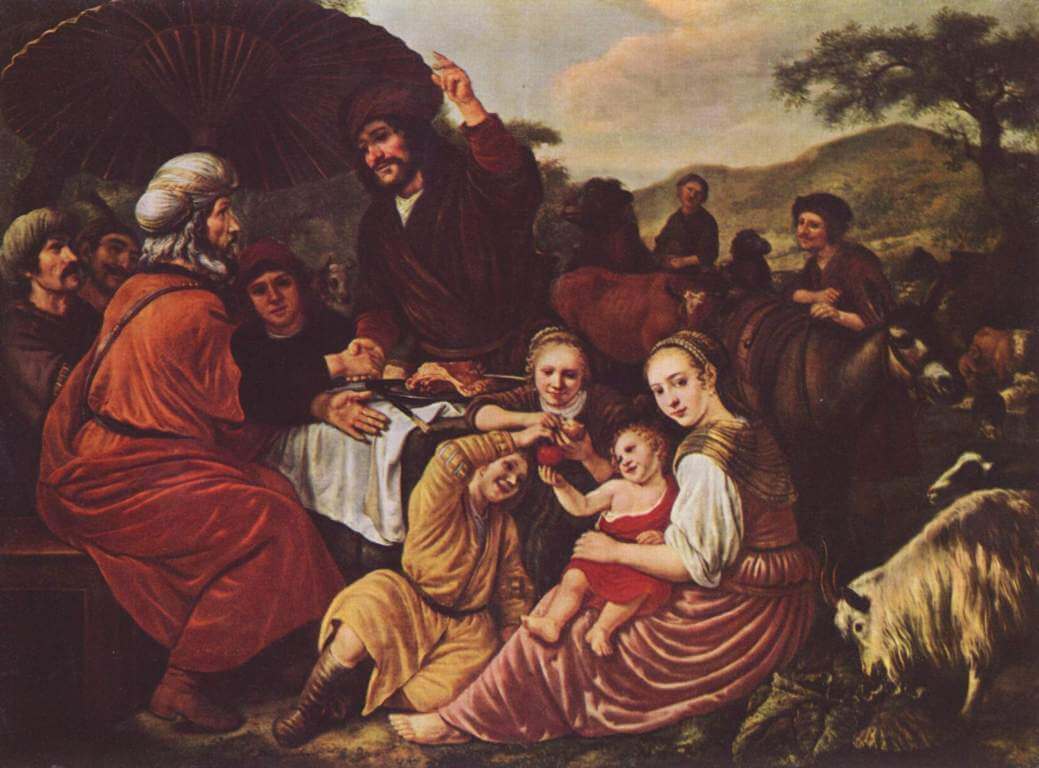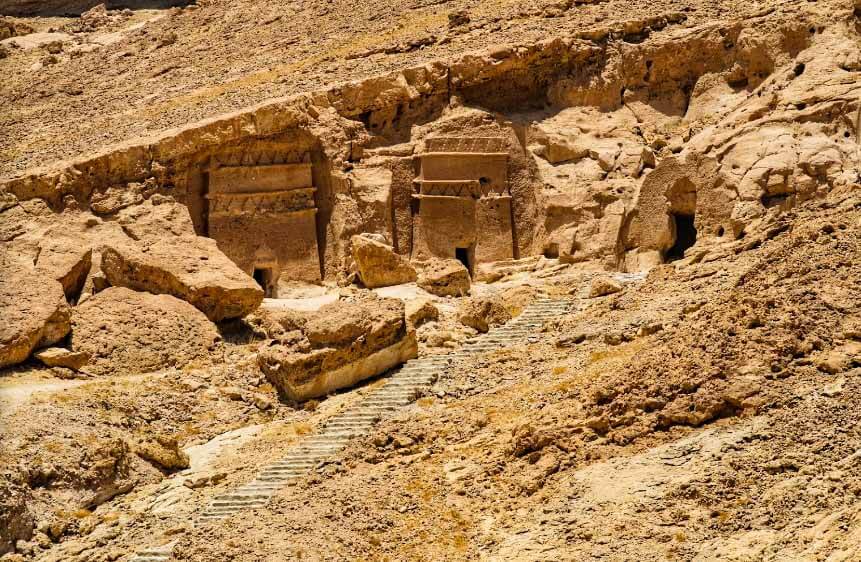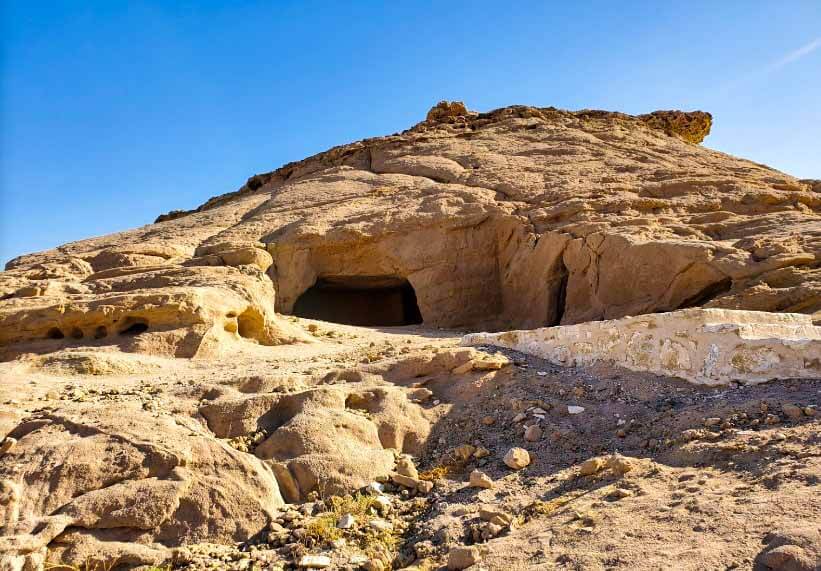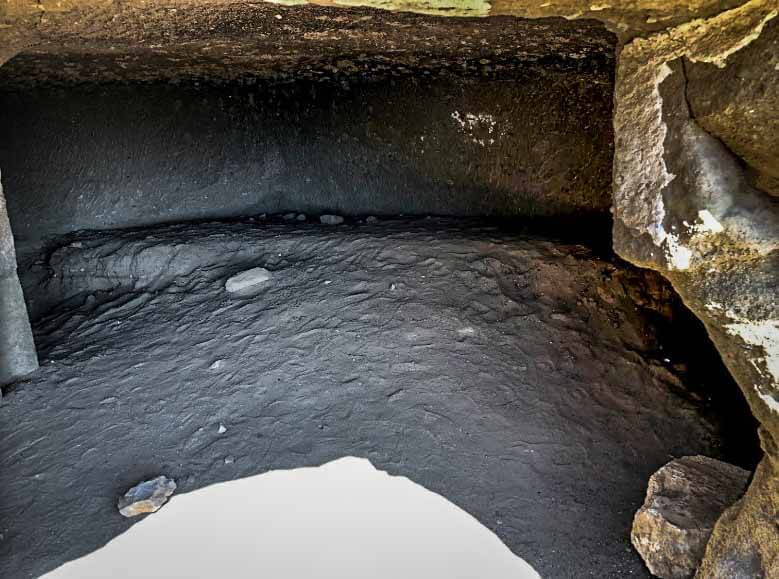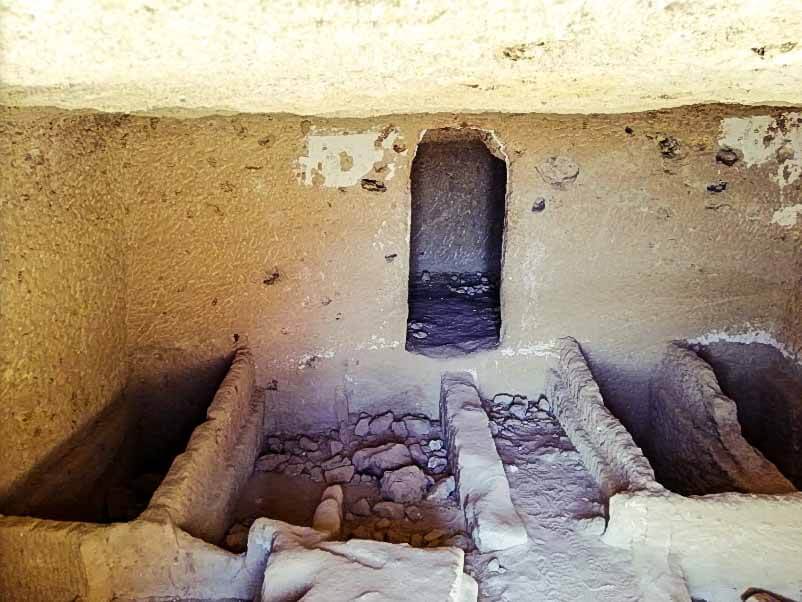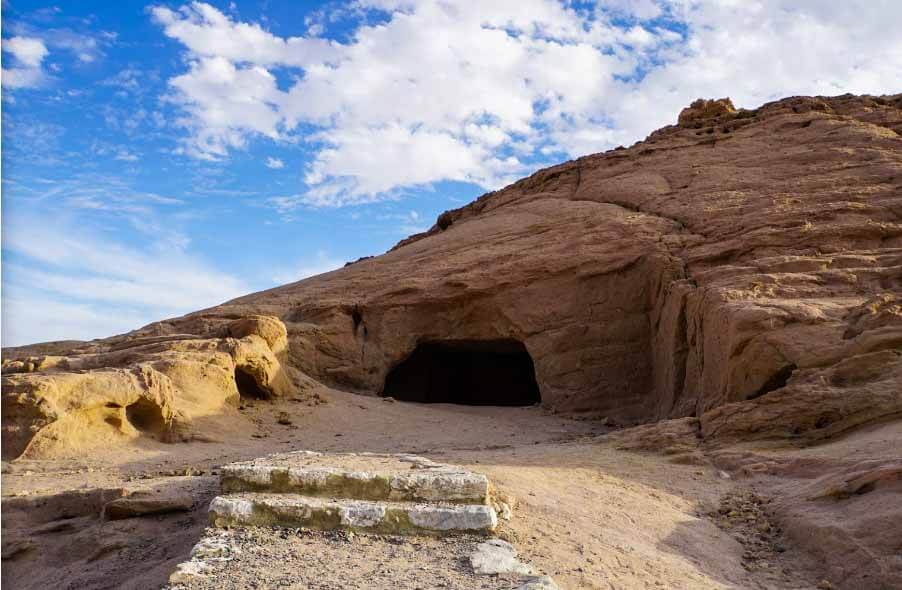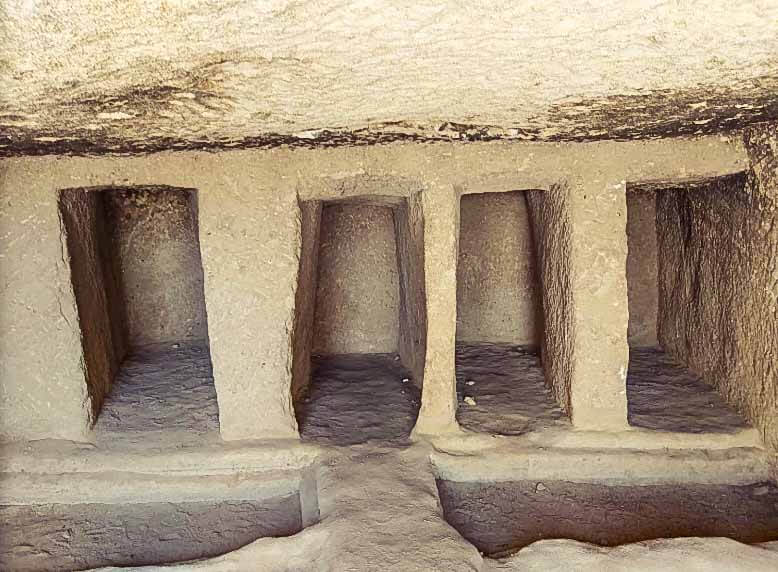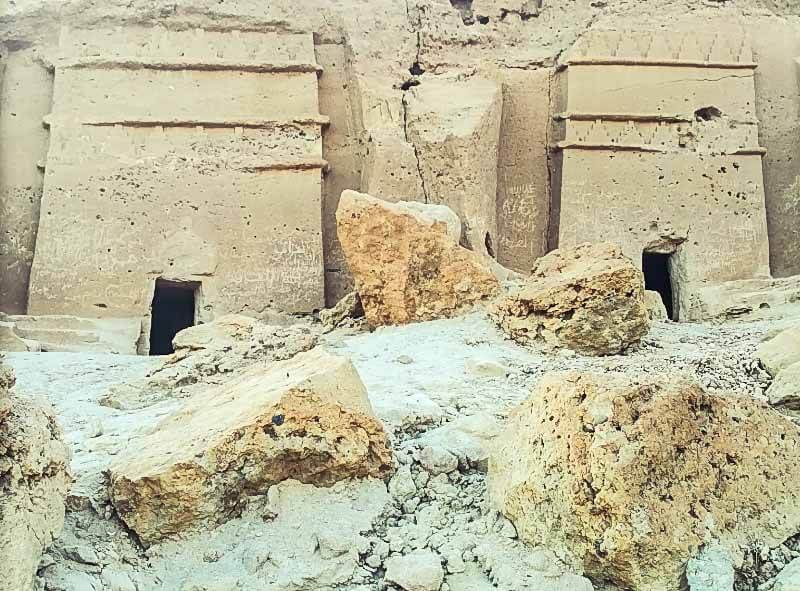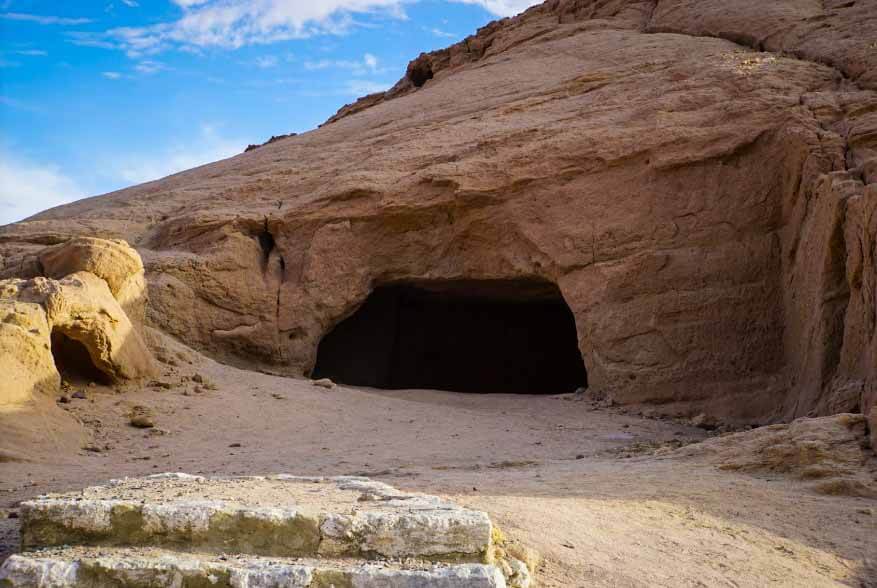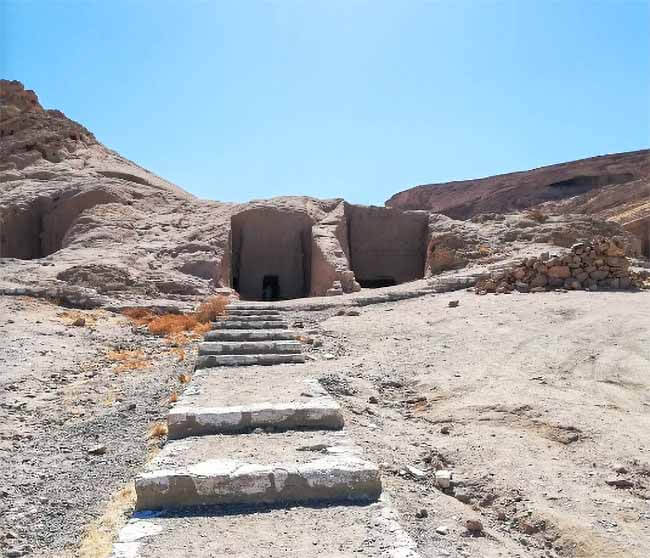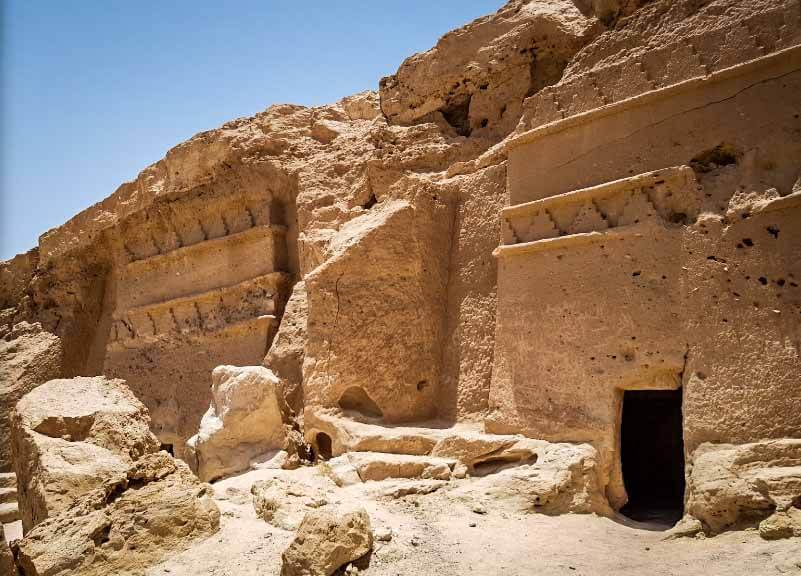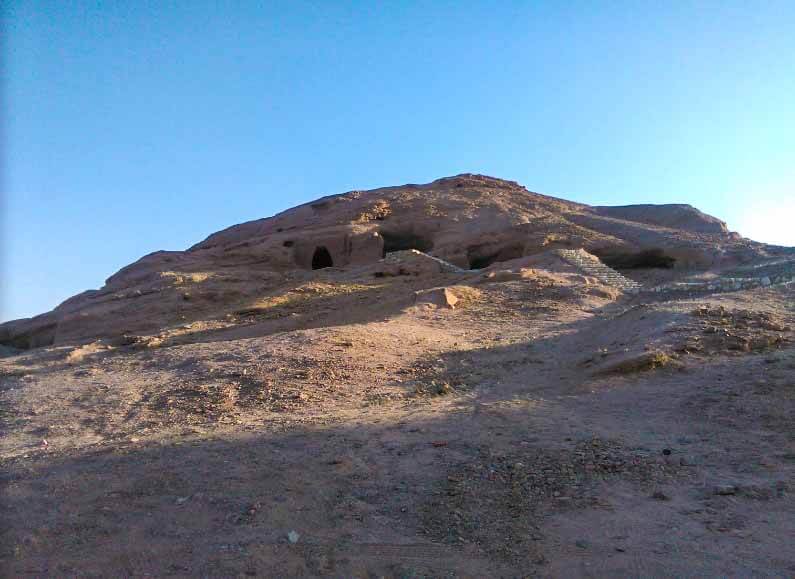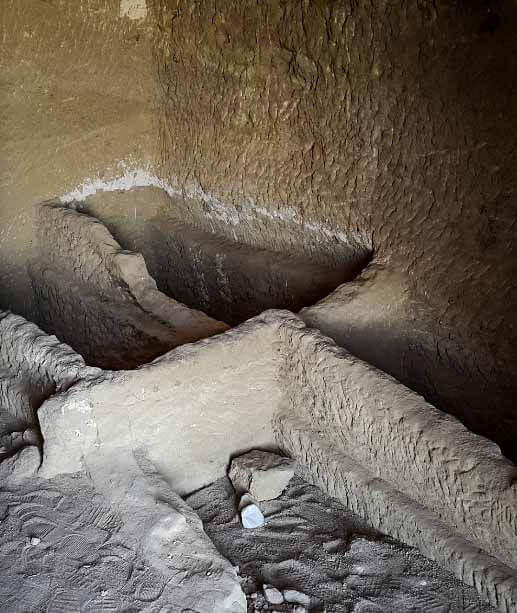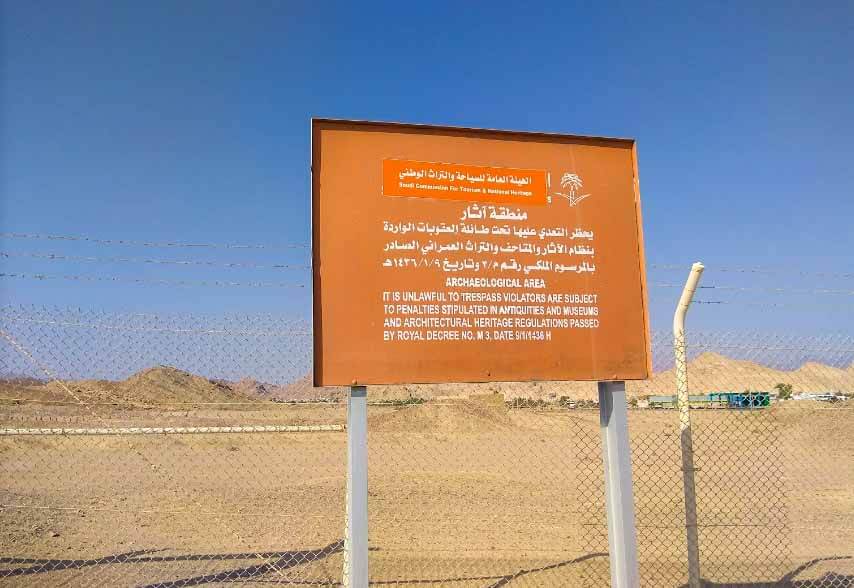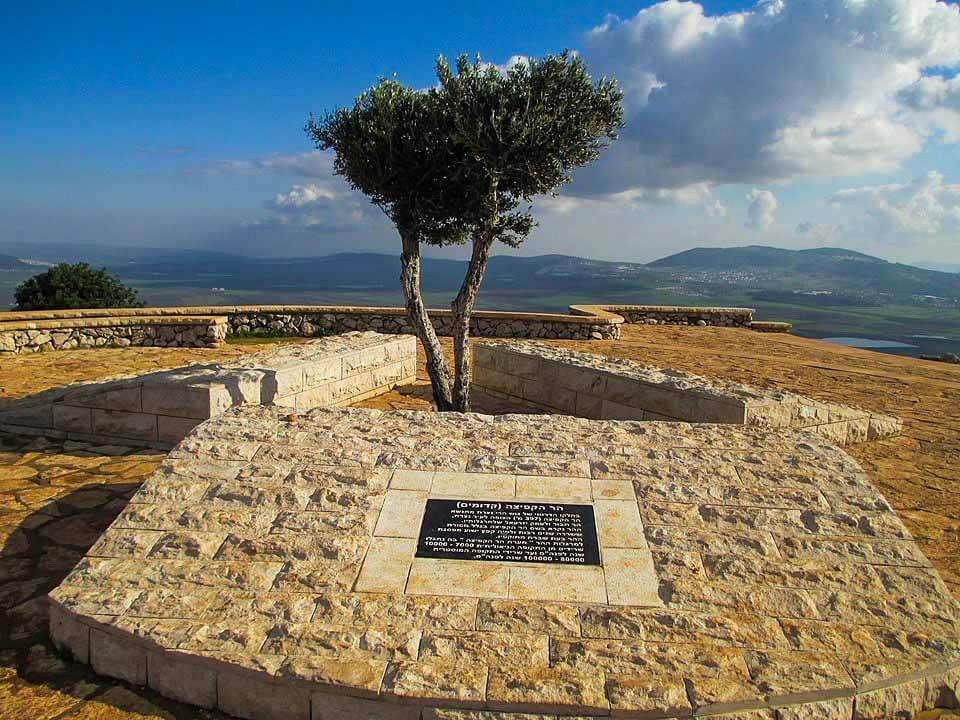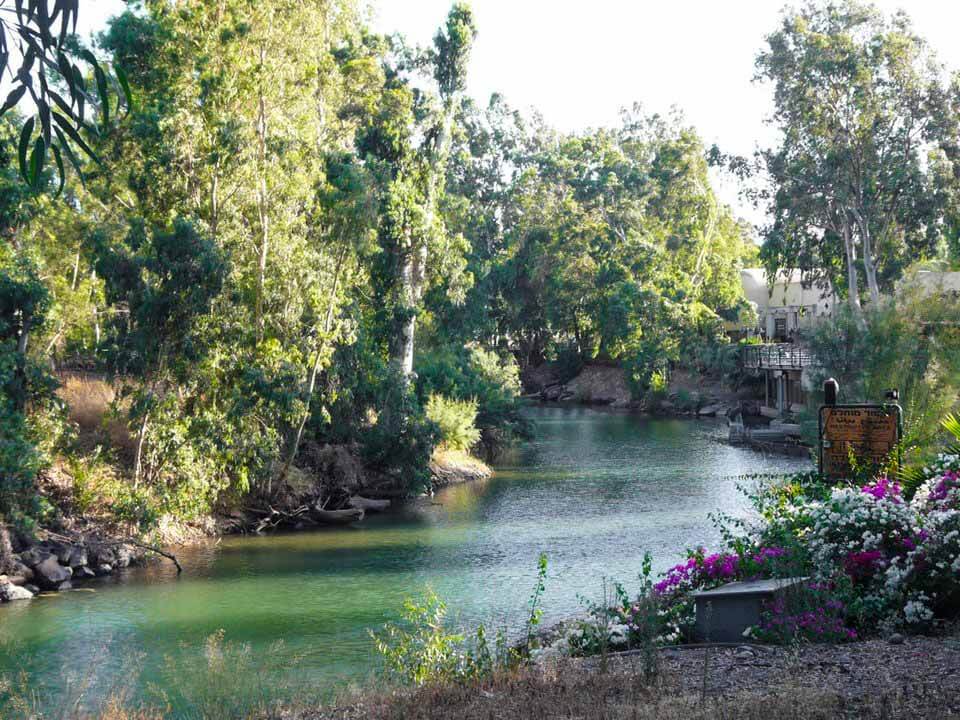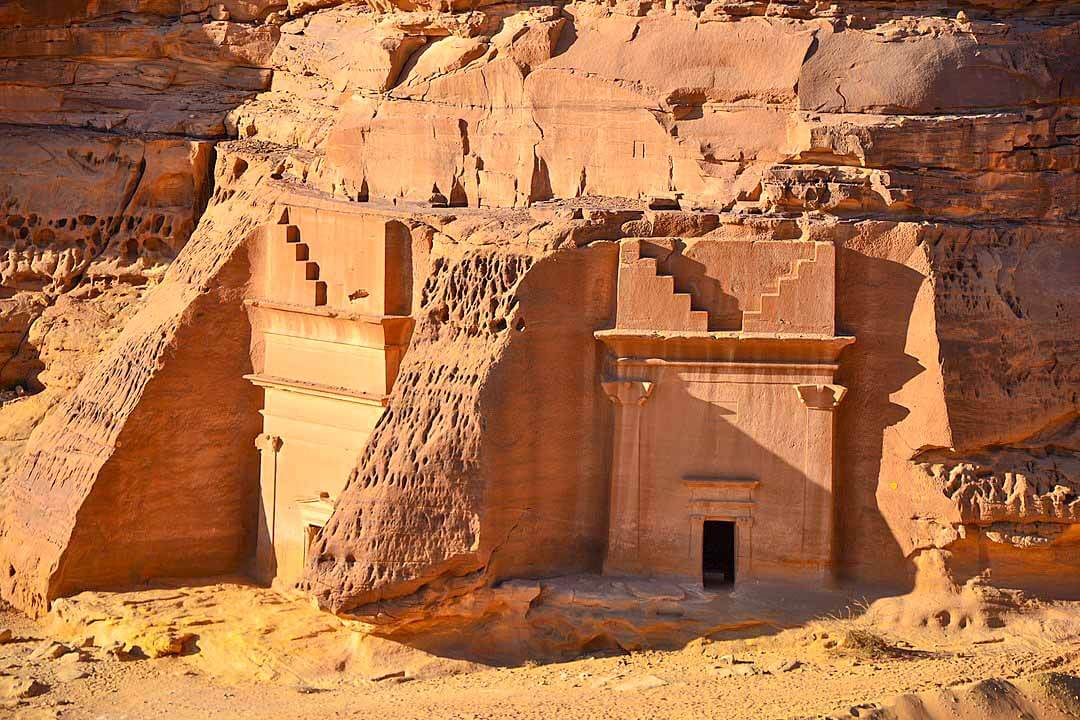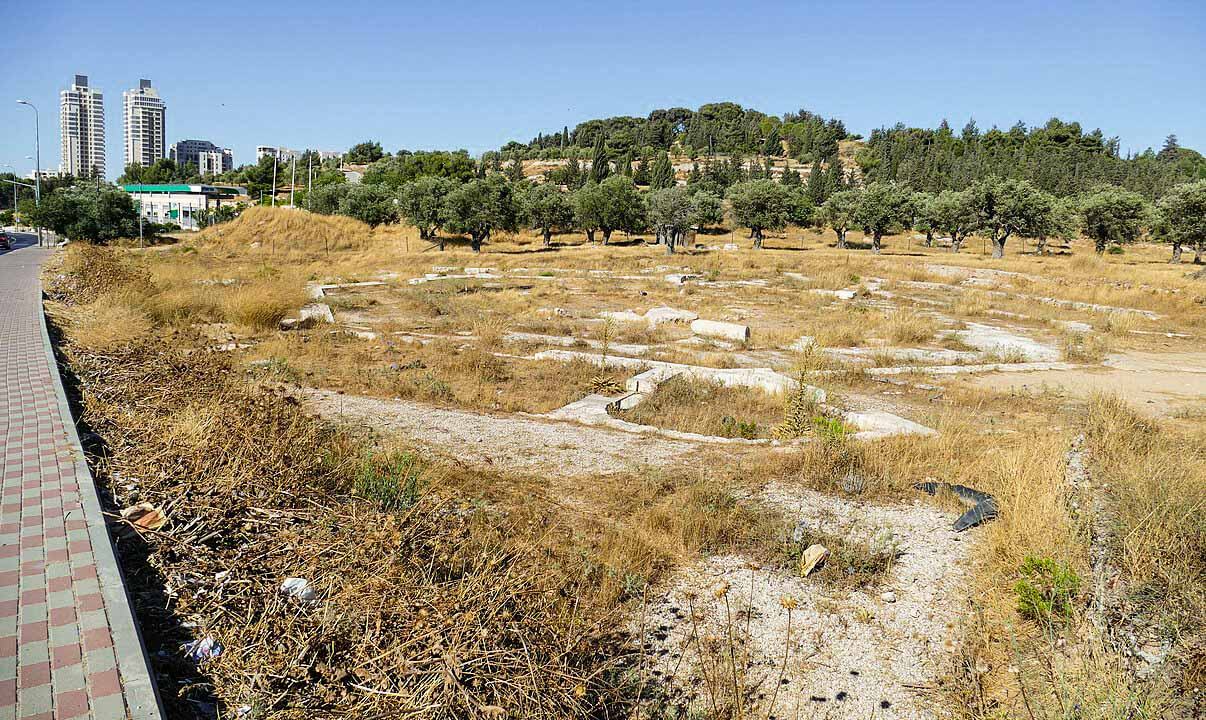Al Bad, Saudi Arabia
Coordinates: 28.487720, 35.000247
Mugha’ir Shu’ayb is a historical site that lies 225 km northwest of Tabuk city in Saudi Arabia.
The significance of the place lies in the name “Shuaib,” which belongs to Hz. Shuaib عليه اسلام who befriended Hz. Musa عليه اسلام and became his father-in-law.
The carved mountains stand as witness to an immortal story that took place in Al-Bida’a governorate, one of the richest historic sites near the Red Sea.
It is the place where Hz. Musa عليه اسلام moved to for a decade. He lived there to meet the dowry conditions to marry Hz. Shuaib’s عليه اسلام daughter before he returned to Egypt to advise the Firawn and his followers.
The place has preserved its historical characteristics, with its carved facades. It is even said that the location is even older than “Madayen Saleh.”
“Magha’er Shuaib” as per the research work and sources was called “Madyan” in the past and in the Quran, while it is known in the present time as Al-Bida’a governorate.
These researches confirm “Magha’er Shuaib” is where Hz. Musa عليه اسلام had lived prior to his prophethood as per the popular story in the Quran.
Story of Hz. Musa عليه اسلام and Madyan
The story in the Quran is told in detail since Hz. Musa عليه اسلام fled Egypt because of the incident in which he accidentally knocked down a man dead, after seeing him fighting with an Israelite.
Hz. Musa عليه اسلام walked towards “Madyan,” across the Red Sea. As he reached a well, he saw two girls waiting for their turn to fetch water for their herd. Hz. Musa عليه اسلام came and offered his help to the two girls and then retired to the shade. When the girls returned to their father Hz. Shuaib عليه اسلام, they told him to reward Hz. Musa عليه اسلام for his help.
Hz. Shuaib عليه اسلام saw that Hz. Musa عليه اسلام was chivalrous and valiant so he asked him to stay with him for eight years and offered him his daughter’s hand in marriage, Hz. Musa عليه اسلام accepted and extended his stay to 10 years.
Story narrated by Ibn kathir
Hz. Musa عليه اسلام helps daughters of Hz. Shuaib عليه اسلام
After fleeing from egypt, He traveled for eight nights, hiding during the day. After crossing the main desert, he reached a watering hole outside Madyan where shepherds were watering their flocks. No sooner had Hz. Musa عليه اسلام reached the Madyan than he threw himself under a tree to rest. He suffered from hunger and fatigue. The soles of his feet felt as if they were worn out from hard walking on sand and rocks and from the dust. He did not have any money to buy a new pair of sandals, nor to buy food or drink.
Hz. Musa عليه اسلام noticed a band of shepherds watering their sheep. He went to the spring, where he saw two young women preventing their sheep from mixing with the others. Hz. Musa عليه اسلام sensed that the women were in need of help. Forgetting his thirst, he drew nearer to them and asked if he could help them in any way.
The older sister said: “We are waiting until the shepherds finish watering their sheep, then we will water ours.” Hz. Musa عليه اسلام asked again: “Why are you waiting?” The younger one: “We cannot push men.”
Hz. Musa عليه اسلام was surprised that women were shepherding, as only men were supposed to do it. It is hard and tiresome work, and one needs to be on the alert. Hz. Musa عليه اسلام asked: “Why are you shepherding?” The younger sister said: “Our father is an old man; his health is too poor for him to go outdoors for pasturing sheep.” Hz. Musa عليه اسلام (pbuh) said: “I will water the sheep for you.”
When Hz. Musa عليه اسلام approached the water, he saw that the shepherds had put over the mouth of the spring an immense rock that could only be moved by ten men. Hz. Musa عليه اسلام embraced the rock and lifted it out of the spring’s mouth, the veins of his neck and hands standing out as he did so. Hz. Musa عليه اسلام was certainly strong. He watered their sheep and put the rock back in its place. He returned to sit in the shade of the tree. At this moment he realized that he had forgotten to drink. His stomach was sunken because of hunger.
Hz. Musa عليه اسلام Helps Women Shepherds – Quranic
Almighty Allah described this event:
“And when he arrived at the water of Madyan he found there a group of men watering their flocks, and besides them he found two women who were keeping back their flocks. He said:
“What is the matter with you?” They said: “We cannot water (our flocks) until the shepherds take their flocks. And our father is a very old man.” So he watered their flocks for them, then he turned back to shade, and said: “My Lord! Truly, I am in need of whatever good that You bestow on me!”
Quran: Ch 28:22-24
Hz. Musa عليه اسلام Becomes a Shepherd – Quranic
Almighty Allah recounted:
“Then there came to him one of the two women, walking shy ly. She said: “Verily, my father calls you that he may reward you for having watered our flocks for us.” So when he came to him and narrated the story, he said; “Fear you not. You have escaped from the people who are Zalimeen (polytheists, disbeliveers, and wrong-doers).”
And said one of them (the two women): “O my father! Hire him! Verily, the best of men for you to hire is the strong, the trustworthy.” He said: “I intend to wed one of these two daughters of mine to you, on condition that you serve me for eight years, but if you complete ten years, it will be a favor from you. But I intend not to place you under a difficulty. If Allah wills, you will find me one of the righteous.”
He (Hz. Musa عليه اسلام) said: “That is settled between me and you whichever of the two terms I fulfill, there will be no injustice to me, and Allah is Surety over what we say.”
Quran: Ch 28:25-28
The Ten Years of Preparation
Time passed, and he lived in seclusion far from his family and his people. This period of ten years was of importance in his life. It was a period of major preparation. Certainly Hz. Musa’s عليه اسلام mind was absorbed in the stars every night.
He followed the sunrise and the sunset every day. He pondered on the plant and how it splits and soil and appears thereafter. He contemplated water and how the earth is revived by it and flourishes after its death.
Of course, he was immersed in the Glorious Book of Allah, open to the insight and heart. He was immersed in the existence of Allah.
All these became latent within him. The religion of Hz. Musa عليه اسلام was the same as that of Hz. Yaqub عليه اسلام, which was Islamic monotheism.
His forefather was Hz. Yaqub عليه اسلام the grandson of Hz. Ibrahim عليه اسلام. Hz. Musa عليه اسلام , therefore, was one of the descendants of Hz. Ibrahim عليه اسلا and every prophet who came after Hz. Ibrahim عليه اسلا was one of his successors.
In addition to physical preparation, there was a similar spiritual preparation. It was made in complete seclusion, in the middle of the desert, and in the places of pasture.
Silence was his way of life, and seclusion was his vehicle. Allah the Almighty prepared for His prophet the tools he would need later on to righteously bear the commands of Allah the Exalted.
Hz. Musa عليه اسلام Decides to Return to Egypt
One day after the end of this period, a vague homesickness arose in Hz. Musa’s عليه اسلام heart. He wanted to return to Egypt. He was fast and firm in making his decision, telling his wife: “Tomorrow we shall leave for Egypt.” His wife said to herself. “There are a thousand dangers in departing that have not yet been revealed.” However, she obeyed her husband.
Moses himself did not know the secret of the quick and sudden decision to return to Egypt.
After all, he had fled from their ten years ago with a price on his head. Why should he go back now? Did he look forward to seeing his mother and brother? Did he think of visiting Pharaoh’s wife who had raised him and who loved him as if she were his mother?
No one knows what went through Hz. Musa’s عليه اسلام mind when he returned to Egypt. All we know is that a mute obedience to Allah’s destinies impelled him to make a decision and he did. These supreme destinies steered his steps towards a matter of great importance.
Story of Madyan in Quran
The people of Madyan are mentioned extensively in the Quran. The word ‘Madyan’ appears 10 times in it. The people are also called Ashab ul-Aykah (Companions of the Wood).
The lands of Madyan are mentioned in sura Al-Qasas (The Stories), verses 20-28, of the Quran as the place where Hz. Musa عليه اسلام escaped upon learning of the Pharaoh conspiring to kill him.
It is in Madyan that he married one of the two daughters of Hz. Shuaib عليه اسلام and worked for him for ten years.
Surah 9 (Al-Tawbah), verse 70 says :
“Has not the story reached them of those before them? – The people of Nuh (Noah), Ad and Thamud, the people of Ibrahim, the dwellers of Madyan and the cities overthrown [i.e. the people to whom Lut preached], to them came their Messengers with clear proofs. So it was not Allah who wronged them, but they used to wrong themselves.”
In Surah 7 (Al-Aʿraf), Madyan is mentioned as one of several peoples who were warned by prophets to repent lest judgment fall on them.
Madyan was warned by the Hz. Shuaib عليه اسلام to repent of using false weights and measures and lying in wait along the road.
But they rejected Hz. Shuaib عليه اسلام, and consequently were destroyed by a tremor (rajfa, v. 91).
Abdullah Yusuf Ali in his commentary (1934) writes, “The fate of the Madyan people is described in the same terms as that of the Thamud in verse 78 above.
An earthquake seized them by night, and they were buried in their own homes, no longer to vex Allah’s earth.
But a supplementary detail is mentioned in [Quran] 26:189, “the punishment of a day of overshadowing gloom,” which may be understood to mean a shower of ashes and cinders accompanying a volcanic eruption.
Thus a day of terror drove them into their homes, and the earthquake finished them.”


